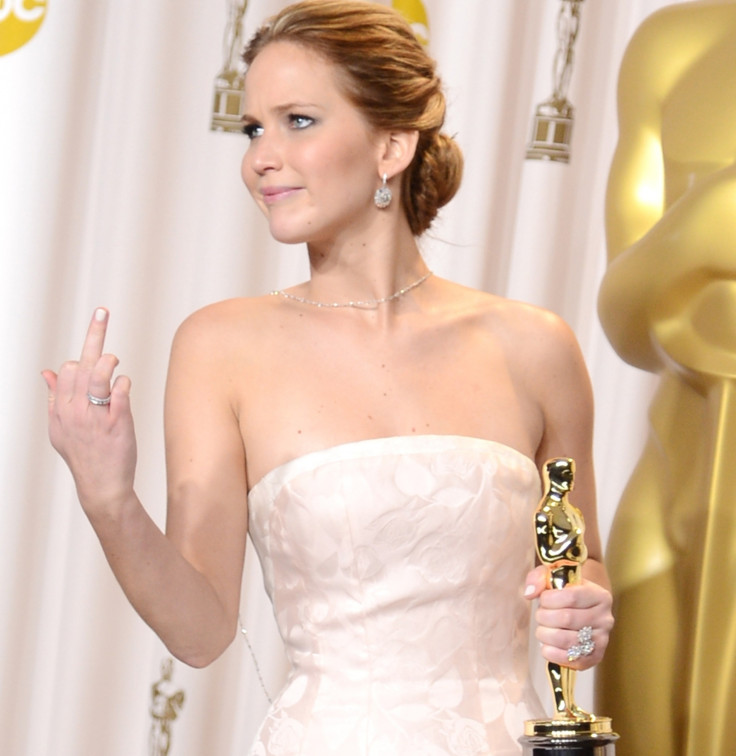F**k yeah! Why swearing is good for you

KEY POINTS
- UK council was recently stopped from rolling out a ban on swearing.
- But as scientific evidence suggests that it could be a positive force, this might be a blessing in disguise.
F*ck. Sh*t. B*llocks. We all know the words that those tiny asterisks are protecting us from (yeah, don't act all innocent). And the fact that we feel the need to censor certain them just goes to show how powerful swearing is.
Naughty language is so deeply harmful in the eyes of Rochdale council that it recently tried to ban profanity in the town centre. Anyone found to be breaking the bylaw by using foul and abusive language would face a fine of up to £1,000.
Responding to a rule that feels archaic when we live in a world where a person can tap a few words into their smartphone and drag up all sorts of horror in seconds, police later advised Rochdale Borough Council to drop the ban over "issues with enforcement", ITV News reported.
Still, aside from protecting our social sensibilities, surely there is a psychological reason for us not to swear?
But according to scientific research, screaming "f*ck" at the telly or yelling "bastard!" at your cat if it pukes on the rug can be a useful psychological tool and even positive.
A 2009 study at the University of Keele found that swearing produces a hypoalgesic effect, meaning it can lessen our sensitivity to pain, and also cut the fear of pain and pain perception. Psychologists came to this conclusion by asking participants to submerge their hands in ice-cold water for as long as possible. They were either asked to swear or use a natural word. Those who used profanities kept their hands in the water for longer, and reported feeling less pain than those who didn't.
To pinpoint whether this would translate across cultures where swearing isn't a common response to pain, Olly Robertson, a PhD candidate in Psychology at Keele, repeated the experiment using Japanese subjects. He found similar results.
"Swearing triggers a well-known stress-induced analgesia," Professor Richard Stephens, senior lecturer in psychology at Keele University, told Men's Health. "It's part of the fight or flight response. Adrenaline is released, the heart pumps faster and we become more enabled to overcome an aggressor or make a swift getaway. Swearing helps many people better tolerate pain."
In Swearing Is Good For You: The Amazing Science of Bad Language, scientist Dr Emma Byrne argues that swearing is both big and clever. She traced swearing back to our primates.
"I don't think we would have made it as the world's most populous primate if we hadn't learnt to swear," she told The Times, arguing it motivated us to develop language.
Fast forward several millennia, and by allowing us to express ourselves, swearing can even prevent physical violence, according to Dr Byrne. Research also shows that rude words help us bond at work and be more productive – regardless of profession. (Although we probably wouldn't recommend applying this rule if you're a primary school teacher).
"Often, swearing is associated with 'macho' cultures, which can be pretty toxic," Caryn Vanstone, the director at organisational change consultancy Lacerta, tells IBTimes UK.
"However, swearing can also be a form of expression, allowing us to show vulnerability, express grievances, and challenge practices – all of which are at the heart of safe, rigorous and innovative work," she adds.
"Whilst we should be wary of extrapolating too far from this, it is possible that swearing acts as a very real – not just perceived – stress relief valve."
Of course no one is saying that swearing every other word in a sentence is healthy, or will win you any friends. The evidence also suggests that those who swear most get less benefit, added Professor Stephens.
"In researching and writing about swearing I'm not attempting to justify rudeness and aggression. Not at all," Dr Byrne wrote in The Guardian. "I certainly wouldn't want profanities to become commonplace: swearing needs to maintain its emotional impact to be effective. We only need to look at the way it has changed over the past hundred years to see that, as some swear words become mild and ineffectual through overuse or shifting cultural values, we reach for other taboos to fill the gap."
But when it comes to banning swear words in public spaces? We say "f*ck that".






















